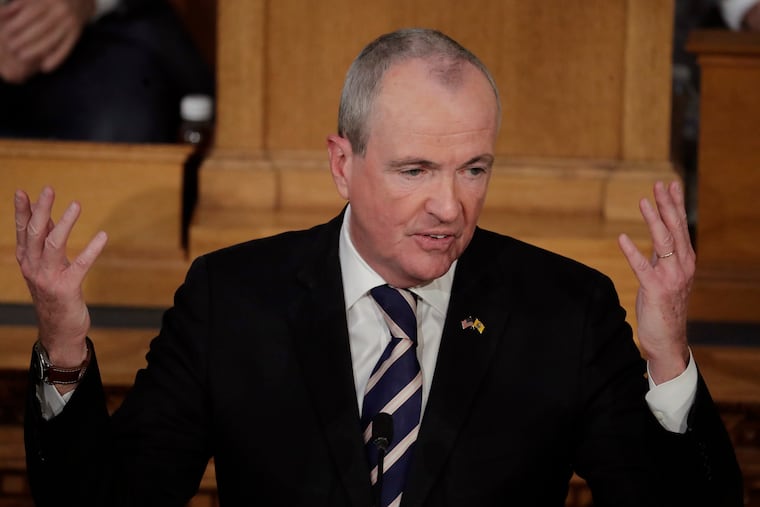New Jersey’s LGBT education law passed with flying colors but its toughest tests may lie ahead
Gov. Murphy recently signed a law mandating that information about LGBT people be mainstreamed into the curricula of middle and high schools statewide. Now comes the hard part: implementation.

New Jersey students may soon begin learning about people like Barbra ‘Babs’ Siperstein, the transgender activist whose death last week came three days after Gov. Phil Murphy signed into law a measure requiring LGBT-related content to be included in the curricula of public middle and high schools statewide.
Given that Siperstein made history as the first openly transgender person to serve on the Democratic National Committee, and was the namesake of another pioneering piece of New Jersey legislation — allowing the birth certificates of transpeople to be amended at their request — she would seem a perfect subject for a classroom discussion. And from what I know of Babs, she’d have loved it.
But it falls to local school boards to carry out state mandates by making decisions about what to study, which books to read, and what sort of lessons to teach about which subjects.
So while we LGBT folks are generally happy to have our role in history acknowledged and our stories told, we know all too well that in some circles, the merest mention of our existence in, say, a middle school textbook, will be condemned.
The impact of the law is not expected to be felt until the 2020-2021 school year. But conservative commentators already are luridly deriding it, saying Murphy is too busy appeasing groups like Garden State Equality to pay heed to the needs of ordinary working- and middle-class New Jerseyans. As if all LGBT people were super-rich (if only).
In a NJ101.5 FM website post headlined “NJ’s new law is another step in the indoctrination of our kids,” radio host Judi Franco fantasized about students being transformed into “guinea pigs” to create “a perfect socialist state.” (For good measure, she labeled Murphy, a Democrat, a “Marxist”).
And the Asbury Park Press quoted Len Deo, of the New Jersey Family Policy Council, saying the law “further erodes the right of parents to discuss this sensitive issue with their children.”
Why is the fact that the LGBTQ community is part of American life such a “sensitive issue” — unless, perhaps, one’s agenda is to marginalize or penalize us? As for protecting children, in 2019 I can’t imagine that a single middle or high school student in New Jersey or anywhere else is unaware of queer people like Ellen, Frank Ocean, and Laverne Cox.
“It’s not just about including people,” said Rick Pressler, director of school services for the New Jersey Charter School Association. “It’s to stop excluding them.”
Nevertheless, the pushback underscores the need for the law — and the importance that local districts carry it out, said Monmouth County art history teacher Kate Okeson.
She and other educators and parents in a grassroots group called Make it Better for Youth have worked on LGBT-related school issues for 10 years. They also collaborate with GLSEN, a national organization that advocates on behalf of LGBT students and has developed curriculum guides, sample lessons, and other materials.
"We’re not trying to say, ‘here is a curriculum you download, plug in, and play.’ We would like to provide guidance for educators and school boards about how to talk to their communities,” said Okeson.
Laurie McGuire, an educator who lives in Salem County and chairs GLSEN’s South Jersey chapter, said the law is essential to fostering "a less hostile environment in schools, a safe place for different voices, and visibility and positive representations that students can take into the rest of their lives.”
Said Jason Rivera, Rutgers-Camden vice chancellor for student academic success: “It’s harder for students to be what they can’t see.”
Modeled on a California measure, the New Jersey law is the second of its kind in the nation and requires local school boards to “adopt only instructional materials [they determine] accurately portray ... the political, economic, and social contributions of persons with disabilities and lesbian, gay, bisexual, and transgender people.”
Were I asked to suggest what ought to be in the curriculum, I’d say the postwar rise of the gay rights movement and its debt to the African American civil rights movement would be a good place to start.
I’d talk about how our community fought for its life during an AIDS crisis that President Ronald Reagan, a.k.a. the Great Communicator, spoke not one public word about during the epidemic’s first five years.
I’d want students to learn about the battle for marriage equality, which would not have been won without the support of our countless straight allies.
Those are just some of the facts and just a few of the narratives. Many are triumphant, others, not so much. But New Jersey students deserve an opportunity to learn about them.